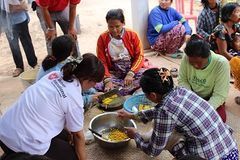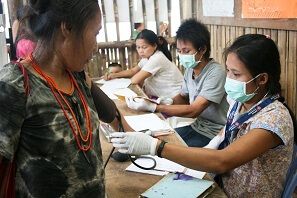A Journey into Cambodia's Past
On her project visit to Cambodia in October, Maria Hacker, our communications assistant spent some time in the province of Oddar Meanchey. Located in the northern part of the country, Oddar Meanchey saw political unrest in 1997 which triggered mass refugee movement into Thailand. After the end of the conflict, Malteser Germany and later Malteser International provided medical care to the returning refugees in the area. Here, Maria tells us about her impressions as she gained an insight into the country’s precarious past.
"Good morning! Are you ready?” Thoeuth, the driver, asked me. I got into the car, hardly knowing how ready one could be for the days ahead. I was going to meet with former refugees, and hear them talk about their experiences in the conflict. Two hours later, we arrived at the office of the Cambodian Health and Human Rights Alliance (CHHRA) in Samraong, a little town with a village atmosphere, and a few kilometers away from the Thai border. CHHRA is a partner organization of Malteser International, and has worked to cater to the needs of vulnerable people in Oddar Meanchey province since it was founded in 1995.
Escape to Thailand
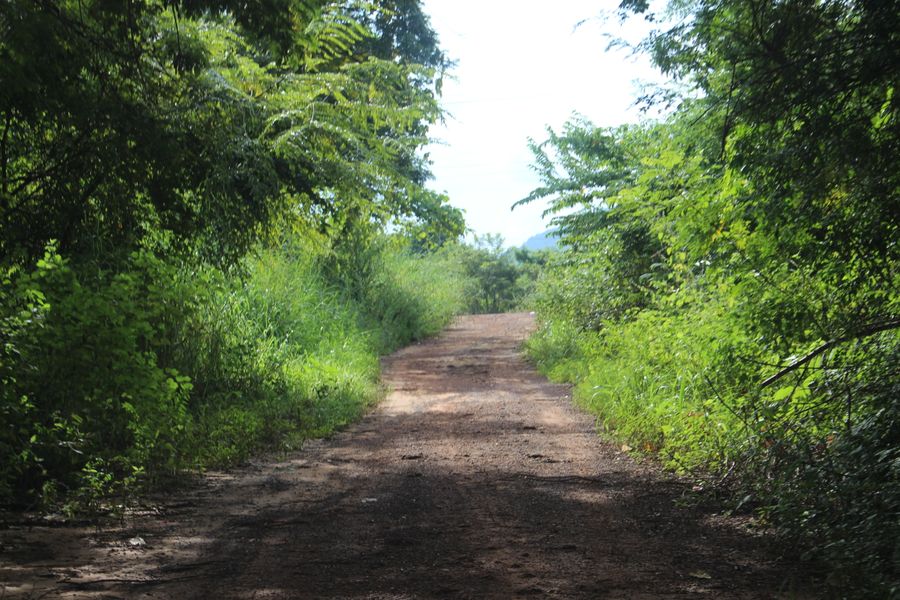
Inside the office of the organization, I was met by the program manager, Heng Kim Noeum. He was to accompany me in the days to come, and show me some historical sites in the area. During our conversation, I mentally traveled back in time; the year was 1997 when new waves of violence in the province caused people to flee to Thailand. Noeum tells me how he and his family sought and found refuge in an old temple. Shortly thereafter, however, they had to leave the country, and were admitted into a camp for Cambodian refugees in Thailand, only six kilometers away from the border. While living in the camp, Noeum, 17-year-old at the time, felt a strong desire to learn English. He wanted to serve as a mediator between his countrymen and the various aid organizations present in the camp. One day, he met staff members of Malteser Germany, who provided medical support in the camp. His services as an interpreter were valuable for the organizations, and soon enough, Noeum started to work for Malteser International until 2011, when he took up his current position at CHHRA.
Return, Malaria and a mobile clinic
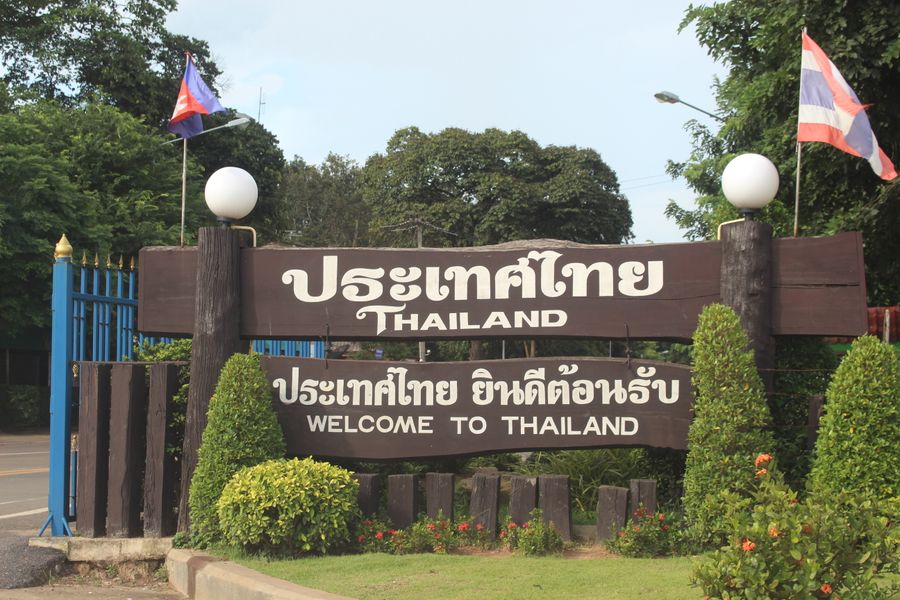
The following day, Noeum and I traveled to the border crossing. The houses lined along the paved roads all looked exactly the same. "These buildings housed soldiers and their families during the conflict," explained Noeum, for whom the trip clearly brought back a flood of memories, both good and bad. "We walked across the border by foot, and had hardly taken anything along”, he recollects. “Only a few people had a scooter to travel with.” Two years later in 1999, the image along this road was a different one. The war was over, and people were on their way back to their homes. “We provided medical care to the returning refugees”, Noeum continued. Noeum always spoke in the first person plural form because he was already part of Malteser Germany’s emergency relief team at the time, and was responsible for analyzing blood samples in the laboratory. “Malaria was the biggest health concern due to the vast forest area. The many little puddles allowed mosquitoes to breed, and so we quickly set up a mobile clinic to serve the population around the area.” Today, the trees are gone, and there is hardly anybody on the street.
Strengthening local structures
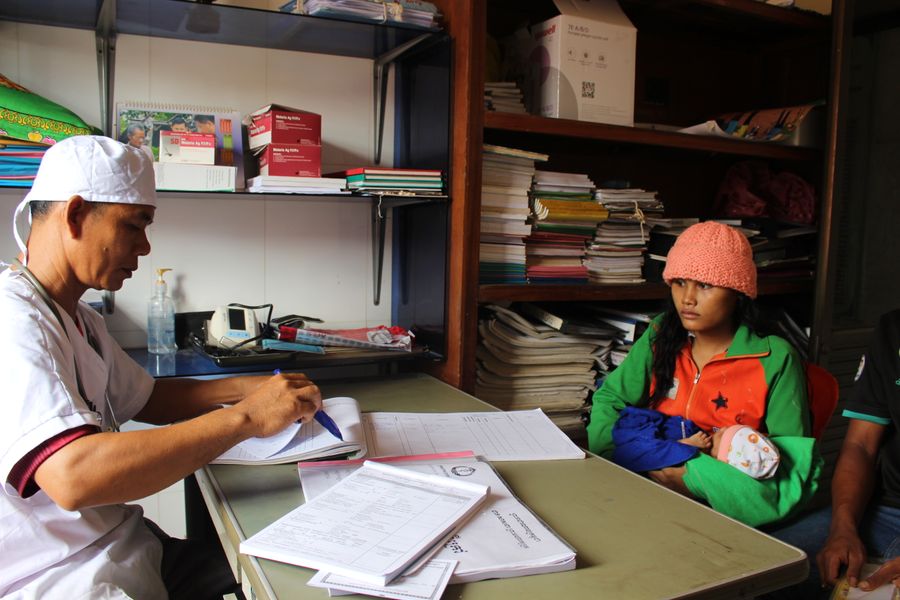
The mobile clinic was to serve the community for several months to come. In 2013, Malteser International constructed a health center where hospital personnel and midwives were trained. The center was handed over to the state government in 2010, and still remains in operation today. "We were once the only health center in the area, and had to deal with many cases of dengue fever every day.” Lyvoeun Kuy, the head of the institution tells me. “Today, on average, there are only nine patients coming in every day. Most of them suffer from pneumonia. Waste is often burnt with charcoal here”, he added. When I asked what the center lacked, he answered: "An ambulance! At present, we are sharing one car with ten other health centers."
Sustainable and voluntary aid
The Malaria project in 1999 was followed by several other projects in the field of mother-child healthcare, running from 2006 till 2015, and from 2009 until 2012, Malteser International also provided a health insurance cover for the most vulnerable members of the community.
Indeed, Malteser’s work in the province of Oddar Meanchey has left indelible marks that can still be seen today. Driving through the villages, the Malteser logo is visible on almost every wall, well, and water tank. In many villages there are voluntary health care workers, trained by Malteser International, who now act as valuable mediators between the health centers and the villagers.
At the same time, partner organizations such as CHHRA have taken on the mantle of providing health support on both national and local levels. For the people of Oddar Meanchey who have been empowered to help themselves, the process of building a brighter future can start, one step at a time.
November 2nd, 2017 - Maria Claudia Hacker/Michael Etoh
More about our work in South East Asia
"In Oddar Meanchey, I was able to revisit an important part of the province's recent history through the eyes of the people. . .the experience was thrilling, but yet evocative."
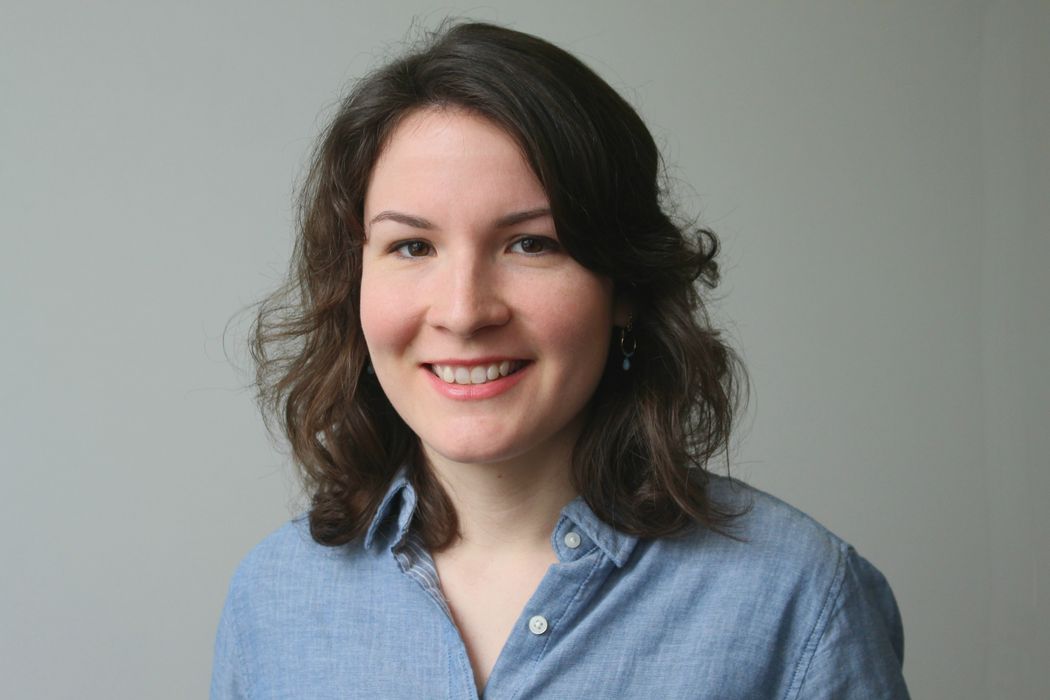
Communications Assistant
Malteser International

